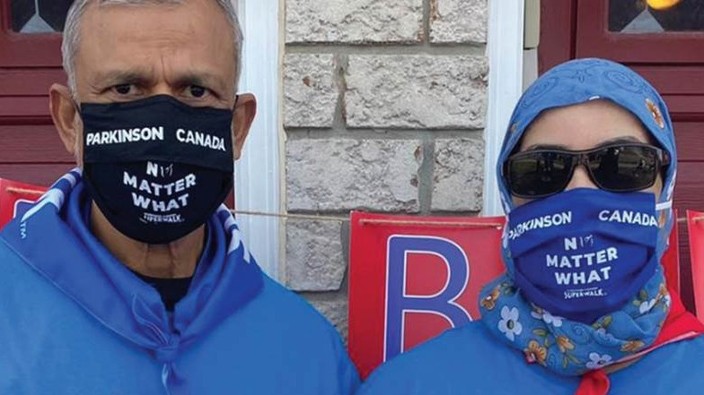manzil: it’s very difficult because everything was so fast. when i went to the office and said that my wife is always coming with me, can she come now? he said no. so i said, oh my god, i have to go down and tell her. and he said to me, you better go quickly, because if you return too late, you might lose your time of surgery. and i didn’t want that. so, i took the elevator down quickly, we hugged each other, and that was it.
i expected to come out of that surgery because they told me that i was a good candidate. i was also 64 at that time and i felt not that old. so basically, i just said okay, going on with it, you know, what can you do? you would love your wife to be there and have that support. but they allowed her in the next day for an hour.
sadia: manzil and i have been married for 44 years. we’re almost always together. this was the hardest thing i’ve had to do. i didn’t sleep at all the night [before] and i was in tears when i called my son to say, can you come get me? he kept saying mama, you okay? mama, you okay? i just felt so alone. i felt so scared. i felt like i didn’t say enough to manzil. i mean, somebody is going into brain surgery, you don’t know…
your mind goes to the worst places, right?
sadia: yeah. and then the security guard was telling me that i couldn’t wait inside the hospital. i kept saying to her, it’s dark outside, i don’t want to be alone.
 12 minute read
12 minute read









